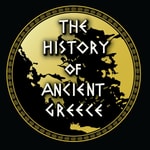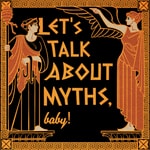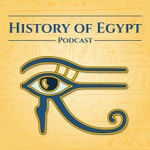The History of Ancient Greece – Details, episodes & analysis
Podcast details
Technical and general information from the podcast's RSS feed.

The History of Ancient Greece
Ryan Stitt
Frequency: 1 episode/24d. Total Eps: 131

Recent rankings
Latest chart positions across Apple Podcasts and Spotify rankings.
Apple Podcasts
🇫🇷 France - history
30/05/2025#95🇫🇷 France - history
29/04/2025#75🇨🇦 Canada - history
25/01/2025#96🇨🇦 Canada - history
24/01/2025#95🇨🇦 Canada - history
23/01/2025#93🇩🇪 Germany - history
24/11/2024#65🇨🇦 Canada - history
18/09/2024#85🇨🇦 Canada - history
17/09/2024#96🇩🇪 Germany - history
09/09/2024#96
Spotify
No recent rankings available
Shared links between episodes and podcasts
Links found in episode descriptions and other podcasts that share them.
See all- https://partialhistorians.com
19 shares
- https://www.amypistone.com/
11 shares
- http://www.alliterative.net
6 shares
- https://twitter.com/podcastnik
57 shares
- https://twitter.com/BritannicaPax
55 shares
- https://twitter.com/pontifactspod
10 shares
RSS feed quality and score
Technical evaluation of the podcast's RSS feed quality and structure.
See allScore global : 53%
Publication history
Monthly episode publishing history over the past years.
111 The Spartan Hegemony
mercredi 28 février 2024 • Duration 02:18:00
In this episode, we discuss Spartan imperial policy at home and abroad in the aftermath of the Peloponnesian War at Sparta from 404-396 BC, including their war with Elis, the imperial ambitions of Lysander and the ascension of Agesilaos, Kinadon's foiled socio-political revolution, and Sparta's invasion of Persia to "free" the Eastern Greeks
Show Notes: http://www.thehistoryofancientgreece.com/2024/02/111-spartan-hegemony.html
110 Xenophon and "The Ten Thousand"
jeudi 5 janvier 2023 • Duration 02:40:00
In this episode, we discuss the life, influences, drawbacks, and positives of the Athenian military leader, philosopher, and historian--Xenophon (ca. 430-354 BC)--who was one of Sokrates' more famous pupils; and the post-Peloponnesian war Panhellenic campaign into the heart of the Persian Empire that he made famous through his writings (the Anabasis)
Show Notes: http://www.thehistoryofancientgreece.com/2023/01/110-xenophon-and-ten-thousand.html
***Special Guest Episode on Greek Naval Warfare w/Marc DeSantis***
lundi 13 juillet 2020 • Duration 01:19:27
028 The Rise of Carthage
lundi 9 janvier 2017 • Duration 53:29
In this episode, part 1 of 2 on the Greco-Etruscan-Carthaginian relations during the 6th/5th centuries BC, we discuss Carthage's foundation myths and early history as just another Phoenician colony, Tyre's decline and Carthage's rise as the dominant economic superpower in the western Mediterranean, the alliance between the Carthaginians and Etruscans against the western Greeks, and the Battle of Alalia and its aftermath
Show Notes: http://www.thehistoryofancientgreece.com/2017/01/028-rise-of-carthage.html
Intro by Brandon Huebner of the Maritime History Podcast
Website: http://maritimehistorypodcast.com
Facebook: https://www.facebook.com/maritimehistorypodcast
Twitter: https://twitter.com/HistoriaMare
027 The Democracy of Cleisthenes
lundi 26 décembre 2016 • Duration 53:52
In this episode, we discuss the political struggle between Isagoras (who was now backed by the Spartan military) and Cleisthenes who ultimately was victorious, which allowed him to institute his overhaul of the Athenian constitution; the different democratic changes that he instituted in regards to the Boule and Ekklesia; and the consequences (both good and bad) from this new revolutionary government, including the gerrymandering of Attica into new tribes, the reorganization of the military structure, Athens' first diplomatic folly with the Persians, and the threat of war with Thebes, Corinth, Sparta, Chalcis, and Aegina
Show Notes: http://www.thehistoryofancientgreece.com/2016/12/027-democracy-of-cleisthenes.html
026 The Tyranny of the Peisistratids
lundi 19 décembre 2016 • Duration 01:05:30
In this episode, we discuss the ascension of Peisistratos as the first tyrant of Athens and the political maneuverings that he and his two sons, Hippias and Hipparchus, took in maintaining (and sometimes regaining) their position, which included armed warfare, trickery, political marriages, and the expulsion of many of their political enemies (who would go and found several colonies in Athens' name); the economic reforms that Peisistratos and his two sons undertook; their patronage of the arts and public works in the Agora and Acropolis, as well as at other religious sanctuaries in Attica; their encouragement of religious festivals, especially the Greater Panathenaia and the Dionysia; and the ultimate dissolution of the tyranny brought about by the assassination of Hipparchus, the susbsequent cruelty and expulsion of Hippias, and the ascendency of Cleisthenes (with the help of the Spartans)
Show Notes: http://www.thehistoryofancientgreece.com/2016/12/026-tyranny-of-peisistratids.html
Intro by Doug Metzger of the Literature and History Podcast
Website: http://literatureandhistory.com
Facebook: https://www.facebook.com/literatureandhistory
Twitter: https://twitter.com/lahpodcast
025 The Reforms of Solon
lundi 12 décembre 2016 • Duration 55:51
In this episode, we discuss the life and deeds of the great Athenian statesman, Solon, who from his position of sole archonship, enacted various economic, political, and legal reforms that would later form the backbone for Athenian democracy in the Classical Period, but in doing so he took a moderate stance to appease everyone, which didn't quiet the ongoing social and economic problems of the state and shortly thereafter factionalism set in, leading to the next phase of Athenian political history (in which aristocratic infighting led to instability for decades and ultimately to tyranny)
Show Notes: http://www.thehistoryofancientgreece.com/2016/12/025-reforms-of-solon.html
024 Early Athens
lundi 5 décembre 2016 • Duration 55:27
In this episode, we discuss the early history of Athens beginning with its mythical past, and how and why the later Athenians promoted and propogandized these myths, with a particular focus on their first king Cecrops, the contest between Athena and Poseidon for the city's patronage, the birth of Ericthonius (the "love" child of Hephaistos-Athena-Gaia) who would go onto become king, the life of Theseus, and the death of the final king Kodras fighting the Heracleidae; in historical times, the abolishment of the monarchy in the Dark Ages that gave rise to the oligarchic government (first by the Medontidai and then the Eupatridai); the social organizations of the Athenians; and finally the social and economic crises at the end of the 7th century BC that brought about an unsuccessful tyranny attempt by an Olympic athlete named Cylon and Athens' first written constitution, orchestrated by a shadowy figure named Draco
Show Notes: http://www.thehistoryofancientgreece.com/2016/12/024-early-athens.html
023 THIS IS SPARTA
lundi 5 septembre 2016 • Duration 01:08:36
In this episode, we discuss the inner-workings of Sparta's unique political, economic, and social system; included are the diarchy (dual hereditary kingship), the Gerousia (council of elders), the apella assembly), and the ephors (judicial overseers); the so-called Lykurgan land reform and the devolution of Sparta's economy; the roles of the Helots (slaves), the Perioikoi (non-citizens), and Spartan women; and the various steps of the agoge (Sparta's education and military training system) which created Spartiatai (full-citizen males)
Show Notes: http://www.thehistoryofancientgreece.com/2016/09/023-this-is-sparta.html
022 Sparta Ascendant
lundi 29 août 2016 • Duration 57:08
In this episode, we discuss the early history of the polis of Lacadaemon (Sparta), including their expansion in the southern Peloponnesus with the 1st and 2nd Messenian Wars (that brought about the formation of the helot system of slavery); Spartan society's social-class tensions and civil strife that led to reform, supposedly by the semi-mythical lawgiver Lykurgas in the 8th century BC, but more likely a gradual process during the 7th and 6th centuries BC; its military growing pains as Sparta suffered a series of losses to their neighbors, Argos (in the Argolid) and Tegea (in southern Arcadia), before eventually defeating them; the life of Chilon, one of the Seven Sages, and his role in making amendments to the Spartan constitution and in guiding foreign policy; and Sparta's ultimate rise to hegemony over their Peloponnesian and Isthmian neighbors, resulting in what modern scholars call the "Peloponnesian League"
Show Notes: http://www.thehistoryofancientgreece.com/2016/08/022-sparta-ascendant.html









